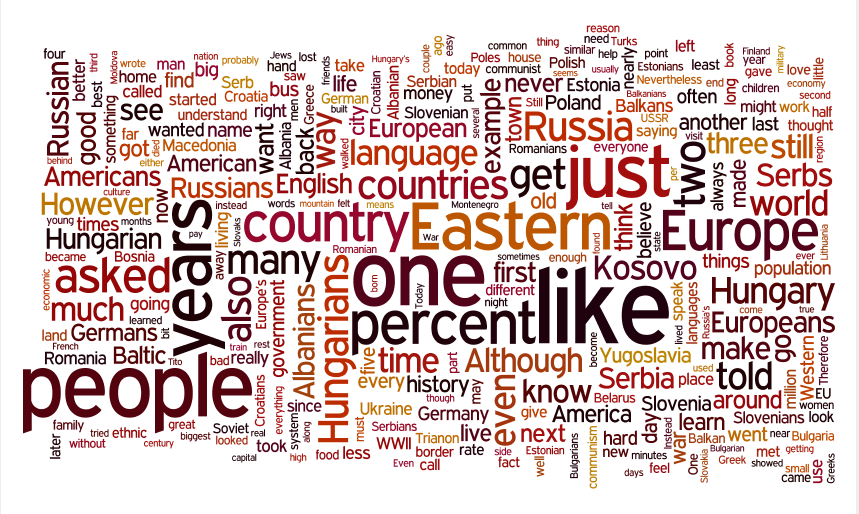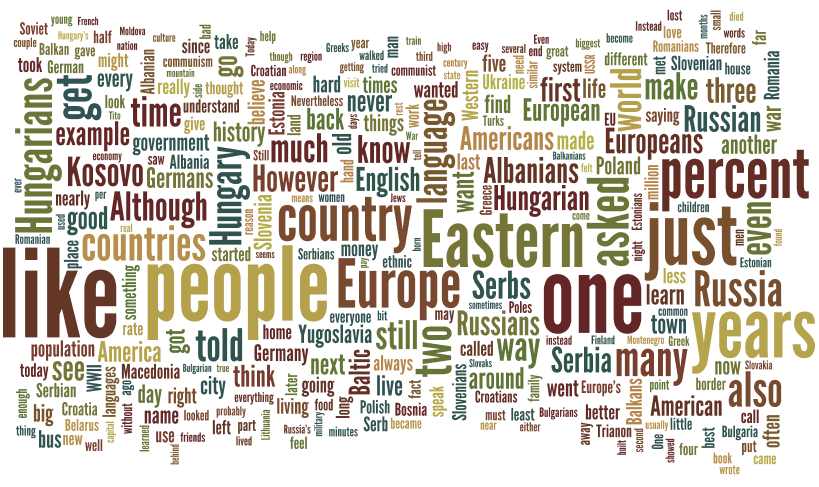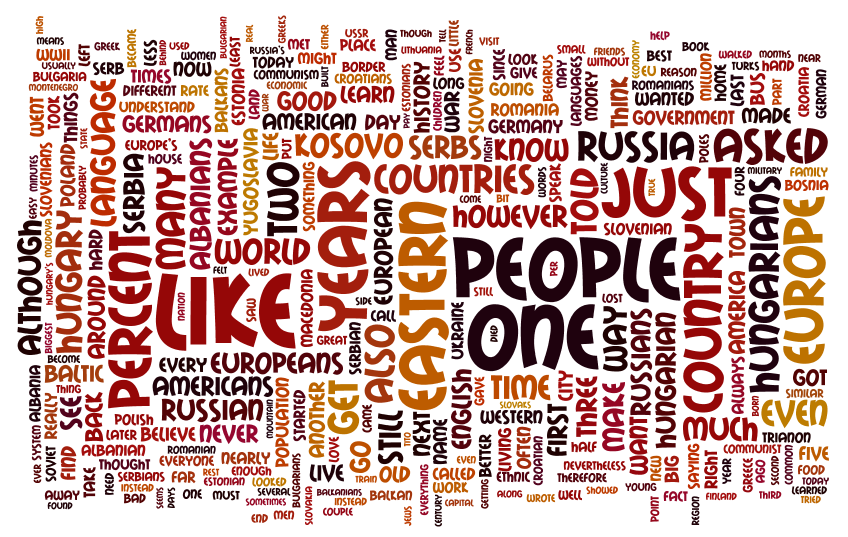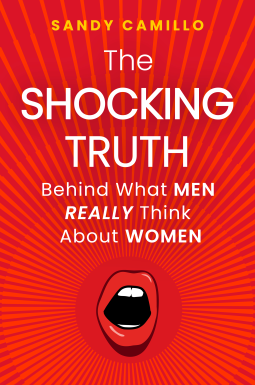The Hidden Europe: What Eastern Europeans Can Teach Us has 330,600 words. That's a lot. It's a 736-page book.
To save you the trouble of reading all 330,600 words, I've selected the 300 most common words and created wordles or word-clouds. The images on this page graphically depict the frequency of words in The Hidden Europe. These wordles ignore common words like a, the, that, and, this. The bigger the word, the more often it appears in the book.
Mouse over each image to enlarge it. Every image depicts the exact same data. The only difference is the formating. The proportion of the words are identical in each word cloud.
Below I'll explain my thoughts about expected and surprising results....
Expected results
- Words like Eastern, Europe, and country are common for obvious reasons.
- Words related to Hungary are common because the chapter on Hungary is the longest in the book (followed closely by the Russia chapter). Also, Hungarians have historically been quite involved in present-day Romania and Serbia, so they're mentioned a few times in those chapters too.
- Russia is big because its influence and chapter is big.
- Americans are often mentioned because the book sometimes draws parallels and connections with the United States so that Americans can relate to Eastern Europe.
- Why are Western European countries like Germany, Italy, and France in the top 300 words if the book is about Eastern Europe? Because Western Europe has often been involved in Eastern Europe, so they come up in several chapters.
- Percent is a common word because the book often cites surveys to backup my anecdotal impressions (e.g., 72 percent of Serb Kosovars don't want to join the EU). Also, I occasionally write about economic conditions, (e.g., 24 percent of Kosovars work in agriculture).
- I use however often because I like to examine both sides of an issue. For example, I'll share one opinion and then say, "However...."
Unexpected results
- I'm surprised that I use the word like so much. Like, what's up with that? Seriously, when anyone reads the book, it doesn't seem that I'm using like so often. It's just one of those words that slides into sentences and we're not even aware of it. There is one other explanation: I wrote this book using straightforward, easy English. I avoided uncommon words and idioms because I knew Europeans who aren't perfectly fluent in English would read the book. To reduce their trips to the dictionary, I would use like instead of fancy, to be keen on, indulge, feel disposed, relish, esteem, approbate, and agnate. Those words are, like, totally confusing if you're not fluent in English.
- I wasn't expecting that one and just are so prevalent. I suspect that they're just words like this and those that shouldn't be counted.
Results I'm happy about
- I'm pleased that people is so common because The Hidden Europe is fundamentally a book about people. Although I examine each country's language, cuisine, and history, I spend the most amount of time analyzing the people of Eastern Europe.
- The word asked is also common because that's what I did during the seven years it took me to write the book: I asked many questions. The Hidden Europe shares the answers to all those questions.
Really? 330,600 words? 736 pages? Are you nuts?
Yes, but fortunately, you don't have to go nuts reading my book. It's written in a modular style. There are 25 loosely related chapters. Yes, there's a common story (my travels through Eastern Europe), but if you feel like reading only 5 chapters or reading just 10% of each chapter, then you'll still get plenty out of the book and you won't get confused.
It also helps that each chapter is broken up into many sections, each with its own heading. About every 1-2 pages you'll see a new heading. This makes it easy to preview what a section will be about, which can help you figure out if you want to read it. Each chapter has a common thread, but it doesn't require linear reading. Still, I hope that once you start reading, you'll want to keep going. :)
Lastly, my writing style is fast-paced. My two editors struggled to find words or paragraphs to cut. I'm succinct.
Now that you've read the 300 most common words in The Hidden Europe, why not read 1-2 chapters?












